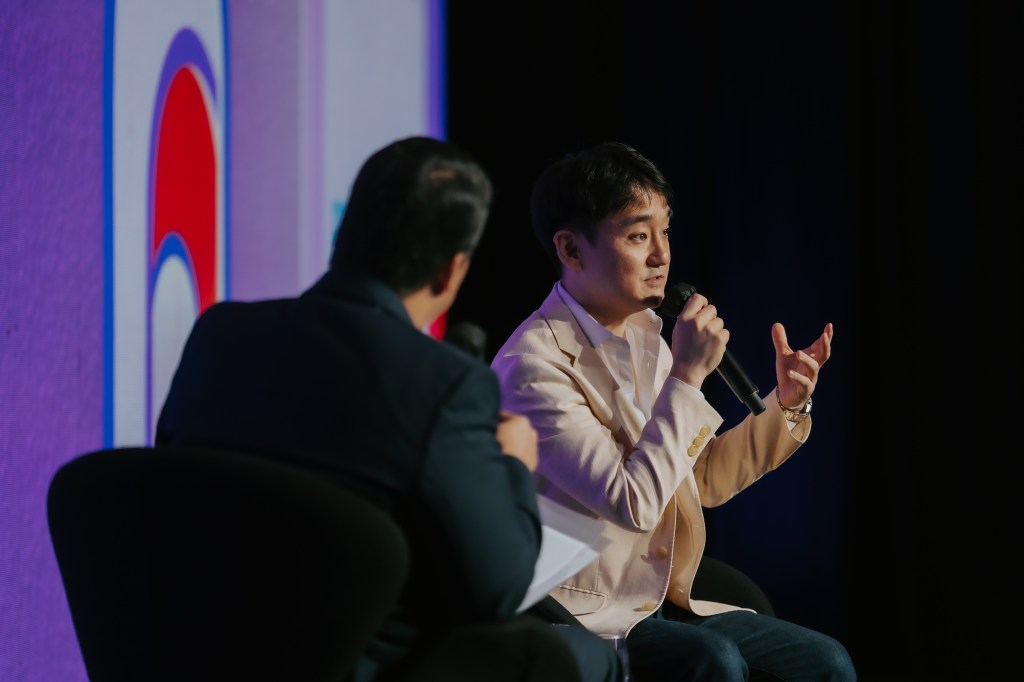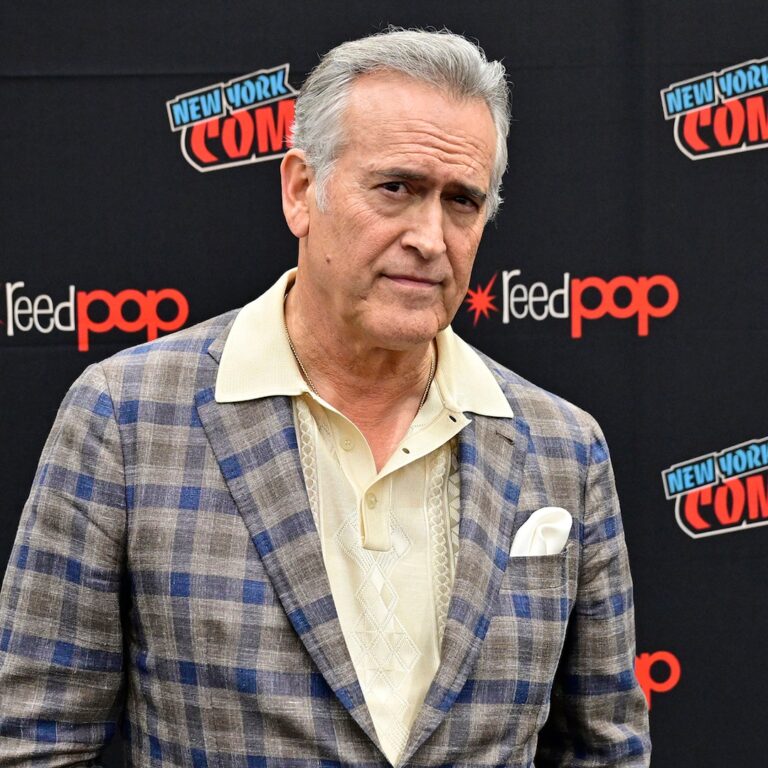Just two days before the third and final season of Squid Game launches on Netflix, the streamer’s head of Korean content, Don Kang, appeared on stage at the APOS media and entertainment summit to discuss the wide-ranging cultural impact of Korean shows, the Korean industry’s production lull, as well as Netflix’s ad tier performance in the country.
Promotion efforts are in full swing for Squid Game, with the cast making appearances in New York and Los Angeles recently — and a massive Squid Game parade is set to take place in central Seoul on Saturday from Gwanghwamun to Seoul Plaza, co-hosted with the Seoul Metropolitan Government.
“At this point, I’m not focused on any numbers or expectations or performance, but really focused on the delivering this great finale for the fans, and delivering the excellent work by the entire cast and crew,” said Kang at the APOS summit, held in Bali, Indonesia. “I was just in New York last week, for the New York premiere event, and thousands of people showed up. It was just really exciting to see the passion.”
Kang has worked at Netflix for seven years, after previously working in international distribution at Korean conglomerate CJ ENM.
He has shepherded the record-breaking series through three seasons, working with creator Hwang Dong-hyuk.
“My previous job before Netflix, I was doing international distribution. I knew Korean content was beloved outside Korea, but mostly in the APAC region, and it was almost impossible to extend further than that market,” said Kang. “But ever since I moved to Netflix, I really saw this surge of global fandom around Korean content, especially around the time of Squid Game. For most people outside Korea, Squid Game was the real first Korean series that they really watched. Ever since then, more than 80% of Netflix members have all watched Korean content and many of them continue to do so. It’s a testament that a great show on Netflix can really expand that audience.
“From season one, it took us about three years to produce season two. That’s a relatively long time for a sequel,” added Kang. “There was a question of whether people would show up. And what we saw, the numbers were incredible. The definition of views is drawn from the actual hours watched, and it was more than 190 million views.”
In just the premiere week, Squid Game‘s second season received more than 60 million views and became Netflix’s biggest show in the second half of 2024. Season 1 ranks as Netflix’s most popular show ever.
However, the third season of Squid Game is premiering amid a time of great concern and anxiety among the Korean film and television industry, with the industry facing major issues like high production costs and troubling theatrical figures. Korea’s box office so far this year has recorded its lowest attendance in two decades.
When asked about these concerns in the Korean content industry and the lull in production, Kang said: “There was a time where there were anywhere between like a 100-150 series per year. That happened during a phase when a lot of series were being exported to China and we saw a lot of global players beginning to take interest in Korean series. But I really see this as a phase because we’ve seen a surge of production and rising production costs before, when China was a really big market for us. When it stopped, everyone thought everyone was really in big trouble.
“It is a phase. It goes up and it goes down, but I am very confident in the future. I have many friends from the local industry, sitting here in this conference room. It is a time where we need to practice discipline in terms of managing costs. But also I know, we’ve done it before, and will come out of this stronger,” added Kang.
Looking internally, Kang said that he is optimistic that the platform will also be able to ride out this lull in the industry.
“These production costs are determined by the production companies, so when we find something that is interesting to commission, we think long and hard about what is the appropriate size of the investment,” said Kang. “We discuss and things get finalized through the negotiations. We try to right-size the budget and as long as we can all exercise that discipline together, I’m very confident about the future health.”
Kang added that besides working with veteran directors, it is also important to search for new talent and he aims for 20 to 25% of the streamer’s Korean titles to be works from new creators.
On the other side of price-related discussions, Kang shared that Korean audiences are taking up the streamer’s ad-supported tier at a rate “similar” to Netflix’s global rate, with 50% of all new members signing up to the ad tier.
“Our ad business in Korea is tracking similar to what we’re seeing around the world,” said Kang. “It gives our audiences and members the choice of how much they want to pay for Netflix, and it also creates a great opportunity for the brands to connect to the stories on Netflix.”
On the partnerships front, Netflix has forged partnerships with Naver as well as Korean car manufacturer Kia.
Naver and Netflix unveiled a partnership in September last year, with Naver also offering Netflix’s ad-supported standard plan as part of its Naver Plus membership since November.
“Our single most important measurement of success is engagement,” said Kang. “With Naver, it was an innovative way to really find and engage with a new sector of audiences in Korea.”
Netflix also recently commissioned a third-party survey of over 11,500 people around the world about Korean content, breaking down popularity and fandom, with a majority of these respondents coming from key markets like the U.S., Brazil, France, India and Japan.
The report, titled “How K-Content is Shaping Global Perceptions of Korea,” found that Netflix members were two times more likely to be interested in Korean culture, and Netflix members were also twice as likely (63% of Netflix users vs 36% of non-users) to show interest in watching K-Content in the future.
Drama, followed by romance and then action, emerged as the most-liked genre among Korean content viewers outside of Korea.
Kang pointed out that there is a positive effect from Netflix’s Korean shows and content in generating interest about other aspects of Korean culture.
“The great thing is that all these shows have Korean elements — like you get to watch Korean food, you get to hear the songs we sing, the places that we go to,” said Kang. “It really impacts the way the world sees and understands Korean culture. We have a new study that shows Netflix members have a much higher affinity towards Korean culture and are more willing to explore Korean products than non-members.”









